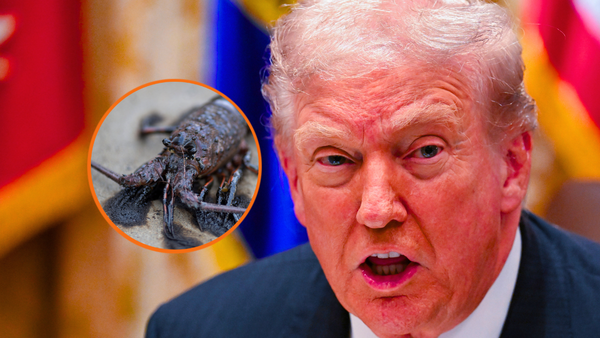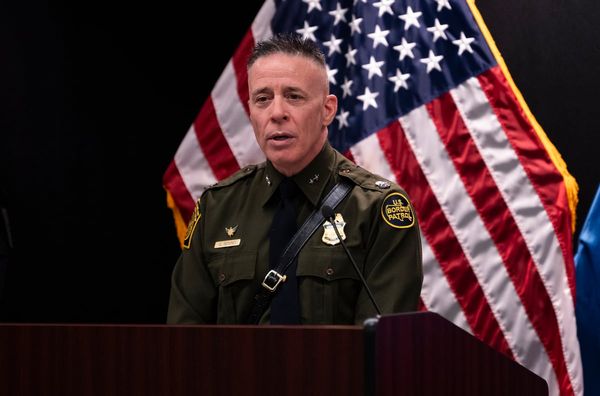
Good morning. Last week, a left-of-centre party that had looked to be on the ropes triumphed after an astonishing turnaround partly triggered by the reverberations from Donald Trump’s arrival in the White House – and the Trump-adjacent leader of the rightwing party faced the humiliation of losing his seat. Well, it’s happened again.
The Australian election was different from the Canadian one in a lot of ways. But a second term for Anthony Albanese and the Labor party, and such a crushing defeat for the Coalition leader, Peter Dutton, is a significant result – the first time an Australian prime minister has won a second term in 21 years, coming even as a growing number of voters turn their backs on the main parties.
Labor’s victory will strengthen the case of those who think that offering a moderate alternative to the kind of chaotic politics unleashed by Trump is the right approach for progressive parties – but, as the news of far right success in Romania in the headlines below suggests, that is not a universal playbook.
We’ll return to Romania in the weeks ahead. For today’s newsletter, I asked Lenore Taylor, editor of Guardian Australia, to unpack what just happened, what to expect from the returning Labor government, and whether the right will conclude that it’s time to abandon a Trumpist approach. Here are the headlines.
Five big stories
UK politics | The sacked former transport secretary Louise Haigh has urged Keir Starmer to avoid a “simplistic and naive” lurch to the right after Reform UK’s success in the local elections. Haigh, the most senior Labour MP to publicly criticise the party’s strategy, said that Labour was “shying away from the battles that we need to have”.
Romania | An ultranationalist who opposes military aid to Ukraine, has vilified the EU’s leaders, and calls himself Donald Trump’s “natural ally” has won the first round of Romania’s rerun presidential vote and will face a centrist in the runoff. George Simion’s far-right Alliance for the Union of Romanians (AUR) began as an anti-vax movement during the pandemic.
Middle East | Israel will strike back against Yemen’s Houthis after a missile fired by the militia movement hit close to Tel Aviv’s Ben Gurion airport on Sunday. The Israeli prime minister, Benjamin Netanyahu, said Israel would respond to the attack “at a time and place of our choosing”.
Terrorism | Eight men, including four Iranian nationals, have been arrested in armed anti-terrorist raids in England. Some of the suspects were planning a terrorist plot, police allege, amid growing concern about Tehran-backed plots in the UK.
Greens | A leading Green has launched a surprise campaign to oust Carla Denyer and Adrian Ramsay as party leaders, saying the party needs to transform itself into a radical, mass-membership “eco-populism” movement. Deputy leader Zack Polanski said: “We should never turn into Nigel Farage. But there are things we can learn in terms of being really clear in speaking to people.”
In depth: Collapse of conservative vote hands Labor a thumping victory
As recently as February, YouGov’s MRP poll gave a 1% chance of a Labor government; by last week, that figure had rocketed to 97%. But while some models pointed to Labor being the largest party in a hung parliament, even the most optimistic analysts on the left didn’t expect the 85 seats (out of 151 in total) that they are on track to win, with the potential for even more in the final tally.
The result is a renewed Labor government that will not need to rely on the support of smaller parties or independents to govern – and a rare moment of stability in Australian politics. “It’s an extraordinary achievement to win two terms in office,” Lenore Taylor said. “Albanese has a lot of political capital to spend now, and it’ll be very interesting to see how he does it.”
***
How did it happen?
You might imagine that an outright majority for the government would be an indication of a settled two-party system. But the evidence of the votes suggests that this was much more a story of disaster for the Coalition, the long-term right-leaning alliance of the Liberal and National parties, led by the Liberals.
“What happened above anything else is that the conservative vote collapsed,” Lenore Taylor said. In this data analysis of the result, Nick Evershed points out that despite Labor’s success, once all the votes are tallied, more than a third of Australians may have voted for someone other than a Labor or Coalition candidate for the first time.
It’s too early to have a firm understanding of why the polls overestimated Coalition support. “They all got burned in 2019, when they were absolutely sure Labor would win, and they were wrong,” Lenore said. “My suspicion is that they overcorrected their methodology, but we don’t know that yet.”
An important factor in all this is Australia’s compulsory preferential voting system, which asks voters to rank their choices, eliminating the last-placed candidate until someone has a majority. (Here’s a useful explainer.) “When a third of the electorate is not voting for a major party, and you have a compulsory system, it’s really tricky to predict,” Lenore said. “People who aren’t engaged in politics but still have to vote are hard to poll accurately.”
***
What does the result tell us about Labor and the Coalition?
In an election dominated by housing and cost of living concerns, Albanese will feel vindicated for a steady, centrist approach despite the apparent threat on his left from the Greens (who ended up losing seats, and blamed it on Liberals in their target constituencies lending their votes to Labor).
“Things changed a lot during the course of the campaign, but Labor stuck to its plan,” Lenore said. “There was a mood of aversion to conflict: Albanese promised to oversee a reforming government, but not a radical government.” The result was a “thumping victory for Labor. But it’s important to say that they had some good fortune: interest rates and petrol prices have come down recently, and the Liberal party comprehensively screwed it up.”
On that subject: “Their policies were really poorly thought through,” Lenore said. “Dutton opposed a top-up tax cut introduced by Labor and presented himself as more fiscally responsible – and then a week later he announced his own tax rebate and a petrol tax cut even though prices were coming down anyway.” The Coalition actually had higher deficits projected for the next two years than Labor, not lower.
“The view of Dutton you heard a lot from people was that he was all over the shop. The whole thing didn’t add up.” Sure enough, voters in his own constituency booted him out after 24 years. (He was gracious in defeat to Labor’s Ali France, a disability advocate who lost her leg in a car accident in 2011, and whose son Henry died of leukaemia last year. You can read more about her here, and see her remarkable tribute to Henry in her acceptance speech here.)
The contrast between the pitches from the two sides worked out badly for the Coalition in a time when many Australians believe the economy has turned a corner: “Dutton kept saying, do you feel better off than three years ago? Whereas Labor were saying, this is how we will make you better off in three years’ time.” In this piece, political historian Judith Brett reflects on the dire position the Liberal party now finds itself in, perhaps as bad as any in its history since the Second World War.
***
How significant an impact did Donald Trump have?
It’s not long since Dutton was quite happy to take a tone that was strikingly reminiscent of Trump and the Maga movement: he has praised Trump’s grasp of “the art of the deal” over his suggestion that the US could take over Gaza; proposed a Doge-style government efficiency unit; promised to slash the education department; warned that young men are being “disenfranchised and ostracised” by diversity initiatives; and vowed a “war on woke”.
He has also called Guardian Australia and national broadcaster the ABC “hate media”. All of that earned him the excellent nickname Temu Trump, in honour of the Chinese website known for cheap knock-offs of well known brands.
The Coalition’s approach was modelled on the referendum over the Indigenous Voice proposal – a plan to establish a formal body for Indigenous people to advise on laws that was resoundingly defeated in 2023. “The Coalition ran a very nasty, negative campaign against the Indigenous Voice proposals, and they thought that that would be a template for a successful federal campaign,” Lenore said. “But then the reality of Trump governing hits, and suddenly that doesn’t work any more.”
Trump’s ascent was not directly at issue in Australia in the same way it was in Canada – but, said Lenore, “it was incredibly influential background music. It’s not like people were thinking about him as they cast their vote for the most part. But his return to office has made that kind of politics anathema. And it may also be a sense of it being better to stick with the devil you know in an unstable wider world.”
***
What does the result mean for climate policies?
Australia’s per capita greenhouse gas emissions are the highest in the OECD, and the country is also one of the biggest exporters of fossil fuels – so climate policy really matters.
In this piece published on Friday, Adam Morton lays out the stark differences between the two sides – even if neither is exactly inspiring for climate campaigners.
The Coalition’s climate policies have been a significant victim of their vacation of the centre ground, Lenore said. “For as long as I can remember, the internal conflict has been between people who are climate sceptics and those who believe they need a credible policy. Their promise to build seven nuclear reactors in 10 years and do literally nothing in the meantime was not taken seriously. Nobody thought they would get built - it was climate scepticism in a thin disguise.”
Now, Albanese’s climate policies – executed without the pressure of a Green bloc in government – will be a key measure of how he will govern. “He went into the last election promising to fix environmental laws that are not fit for purpose, but then it looked like doing that would cost them some seats, and it was shelved. Progressives will want him to return to serious climate action now – to roll out renewables further and faster, and to announce a renewed 2035 emissions reduction target.”
What else we’ve been reading
A wonderful birthday tribute to the Goat of national treasures David Attenborough: 99 nature lovers – one to mark each year of Sir David’s life – pay tribute including Barack Obama, Jane Fonda, Margaret Atwood and Billie Eilish. Annie
Nicky Bandini writes powerfully about the experience of trans women like her since the supreme court’s ruling on the Equality Act last month: lives that feel “more difficult and less safe”, but which “are not suddenly going to fit neatly into the boxes you imagine for them”. Archie
John Harris wonders whether Brits are all suffering “the political equivalent of road rage” as he writes about his experience of witnessing the bitterness and bad feeling underpinning local elections last week. Annie
This picture essay by Christian Doyle is a beautiful document of the lives of a group of women born before the second world war. Doyle writes: “To the question ‘how are you today?’, the reply is invariably: ‘Oh, you know, I have my moments, but you’ve just got to get on with it, haven’t you?’” Archie
The heavy price we are all paying now Ticketmaster has come to dominate the live music scene is laid bare in this comprehensive piece by Dorian Lynskey on the great gig ticket ripoff. Annie
Sport
Football | In the Premier League Chelsea beat Liverpool 3-1 at Stamford Bridge, consolidating their bid for a place in next season’s Champions League. In the days other games, Brentford beat Manchester United 4-3; Brighton Hove & Albion drew 1-1 with Newcastle United; and Westham United drew 1-1 with Tottenham Hotspur.
Formula One | Oscar Piastri won the Miami Grand Prix from Lando Norris in second, stretching his lead in the drivers’ championship as the McLaren teammates dominated the race. George Russell completed the podium with a third place for Mercedes.
Snooker | The Crucible qualifier Zhao Xintong took a commanding 11-6 lead over Mark Williams on day one of the final, getting the best of the three-time champion on the biggest stage of his career.
The front pages
The Guardian splashes on “Starmer urged to avoid ‘simplistic’ lurch to right after Reform success”, while the i has “Labour hopes immigration crackdown can halt Reform UK”. The Times says “EU blocks efforts to curb flow of migrants”. The lead story in the Telegraph is “Imminent suspected Iran ‘terror raid’ foiled” and the Daily Mail also has that – “‘Major terror plot by Iran’ is foiled”. “Please don’t give up your Ukraine support now” – that’s a Ukrainian second world war veteran’s message in the Express for VE Day. “Salute for my friends” – the Mirror also has the story of a veteran, aged 99 but still visiting Arnhem where he fought. Top story in the Financial Times is “Chinese exporters plot paths through third countries to dodge Trump tariffs”.
Today in Focus
Sabotage and secret identities: Russia’s spy network
Shaun Walker reports on the history of Russia’s ‘Illegals’ programme and what it looks like today
Cartoon of the day | Edith Pritchett
The Upside
A bit of good news to remind you that the world’s not all bad
For a decade, Jeewanthi Adhikari watched as she was passed over for promotion time and time again. An aspiring hotel manager in Sri Lanka’s tourism industry, even if she made it to interview she was forced to field relentless questions about her commitment to her career and whether she was planning to have children.
A few months ago, her big break came courtesy of Sri Lanka’s first all-female staffed hotel, Amba Yaalu. Now, as manager, she and her 83-female colleagues are not only looking after guests but busting gender stereotypes in a country where less than 10% of the tourism workforce is female.
Amba Yaalu has recruited women from all different walks of life across the country.
The hotel is already proving a hit with guests, hopefully helping to create a model that will provide the incentive for more hotel chains to follow suit.
Bored at work?
And finally, the Guardian’s puzzles are here to keep you entertained throughout the day. Until tomorrow.







